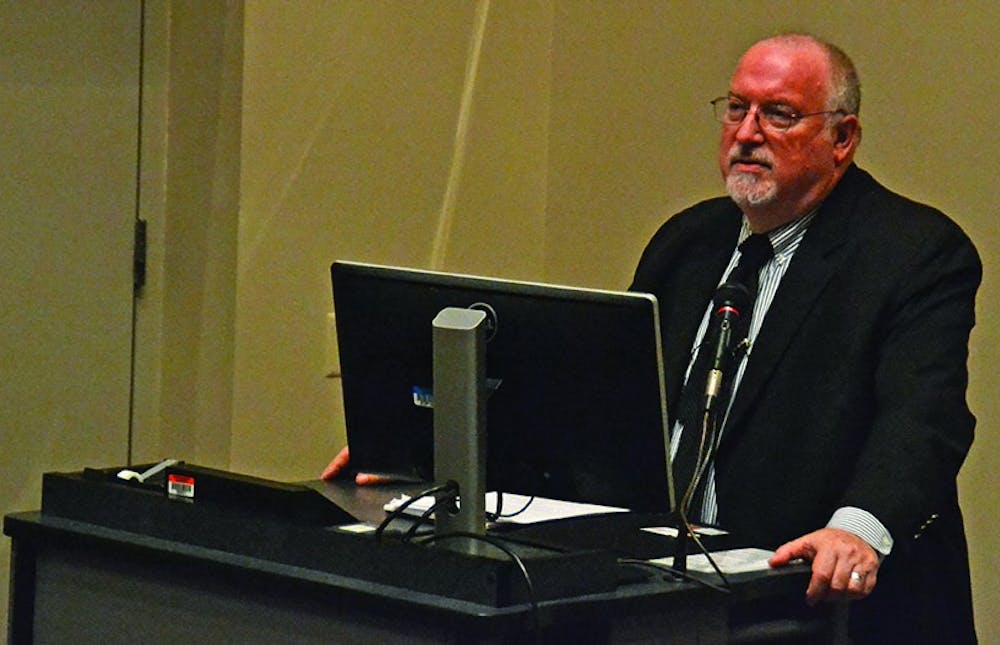Shippensburg University students packed into the Grove Forum on Nov. 12 to learn about the successes and shortcomings of the 1990 Americans with Disabilities Act (ADA) in a lecture led by Richard Scotch of the University of Texas at Dallas.
Scotch, a professor of sociology and public policy, is an internationally renowned expert in disability policy, health policy and the ADA. Scotch, who authored several books and is an award-winning expert, held the position as president of the Society of Disabilities Studies in previous years.
Prior to passing the ADA, which had its 25th anniversary in July, individuals with disabilities were treated poorly in all aspects of life. It was not uncommon for these individuals to be locked in institutions, forced to undergo sterilization surgery and told not to go out into the public eye because their appearance might offend someone, according to Scotch.
Scotch said that society has made a lot of progress since the ADA was passed in 1990, but it still has improvements to be made.
“People are not equal, don’t have equal opportunity and individuals with disabilities are secluded from the world around us,” Scotch said.
According to Scotch, employment rates for those with disabilities are down from where they were in the 1980s. Statistically, disabled individuals earn less than those without disabilities and are more likely to only work part-time.
Scotch said that there is hope for the future of those with disabilities. He feels that solutions have to come on the part of communication and understanding in hopes of public understanding. He encourages a vast social movement in the aims of changing people’s attitudes, behaviors and stereotypical beliefs.
“My favorite aspect of the presentation was the way that Dr. Scotch spoke the truth about people who have disabilities,” said SU senior Liz Smith. “It was nice to see all the people here to hear the story and get insight on how hard we [people interested in the field] are working.”
“The ADA is one of America’s most comprehensive pieces of civil rights legislation that prohibits discrimination and guarantees that people with disabilities have the same opportunities as everyone else to participate in the mainstream of American life — to enjoy employment opportunities, to purchase goods and services, and to participate in state and local government programs and services,” according to ADA.gov.
President George H.W. Bush signed the ADA on July 26, 1990. The act was built based on the previous laws and practices of the 1964 Civil Rights Movement. The ADA has caused many changes in the lives of people living with disabilities, but it was not without resistance and challenges.
SU’s Office of Social Equity, Commission on Human Understanding, John L. Grove College of Business, disability studies minor and numerous other departments sponsored the event.




The Slate welcomes thoughtful discussion on all of our stories, but please keep comments civil and on-topic. Read our full guidelines here.